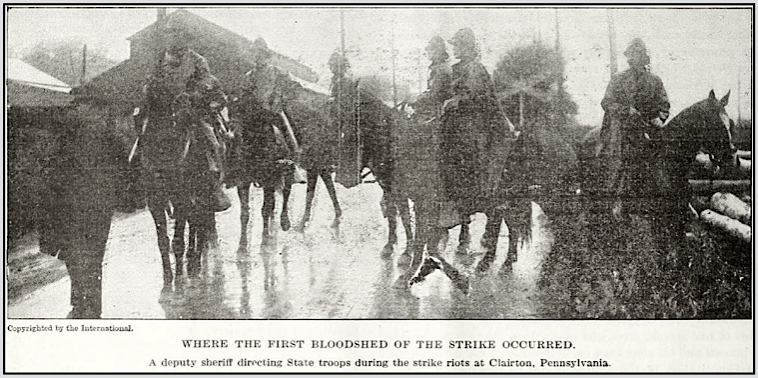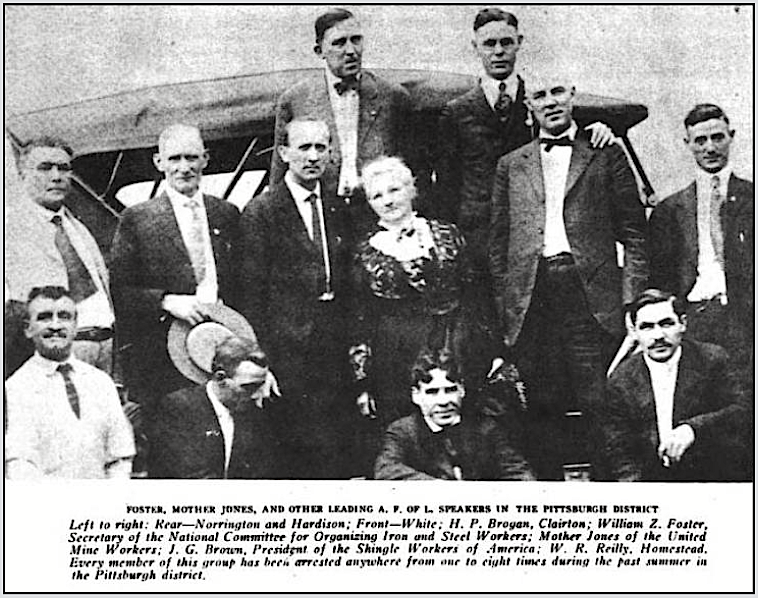 ———-
———-
Hellraisers Journal – Tuesday November 18, 1919
Pennsylvania Cossacks, Steel Strikers, and Civil Liberty
From The Nation of November 15, 1919:
Civil Liberty in the Steel Strike
By MARY HEATON VORSE
THE steel strike has been marked by the orderliness of the strikers on the one hand, and on the other by the sweeping denial of their civil rights, and by the brutality of that extraordinary body of men, the State Constabulary of Pennsylvania. When one states that in Homestead, for example, there was a reign of terror, that men were beaten for no cause and chased down the street into strange houses; that men and women were arrested and fined for no cause and their fines remitted under promise that they would go back to work; and that posters fomenting race hatred are even now in current circulation in the steel mills, the statements sound fantastic. Let the documents, however, speak for themselves. One may choose almost at random from a wealth of material. The cases cited are not isolated; town after town had its own story of terrorism to tell.
In spite of Judge Gary’s statement to the contrary, men were persecuted and dismissed for union activities.
Not only were such methods used to discourage the men from organizing, but the rights of free speech and free assembly were denied them. No meetings were allowed in Farrell, Monessen, and Donora. In McKeesport people were arrested while attending a meeting and fined excessively. Rabbi Wise was refused a permit to hold a meeting in Duquesne, the burgess of this town remarking with naive truth: “Jesus Christ couldn’t hold a meeting in Duquesne.” Since September 22 [the date the Steel Strike began] no meetings have been allowed in Pittsburgh except at the Labor Temple. The strike in that city is unpopular with the authorities. Because the sheriff does not like Mr. Foster, he arbitrarily takes away the workers’ civil liberties, though at no time has there been even a suggestion of disorder in Pittsburgh.
Before the strike was actually in progress, the State Constabulary was called in and an extra police force of 5,000 was deputized in Allegheny County alone. Among these deputies were Negro strike breakers—in the towns of Donora and Monessen—and this during a time when an epidemic of race riots had swept the country.


 ———-
———-
